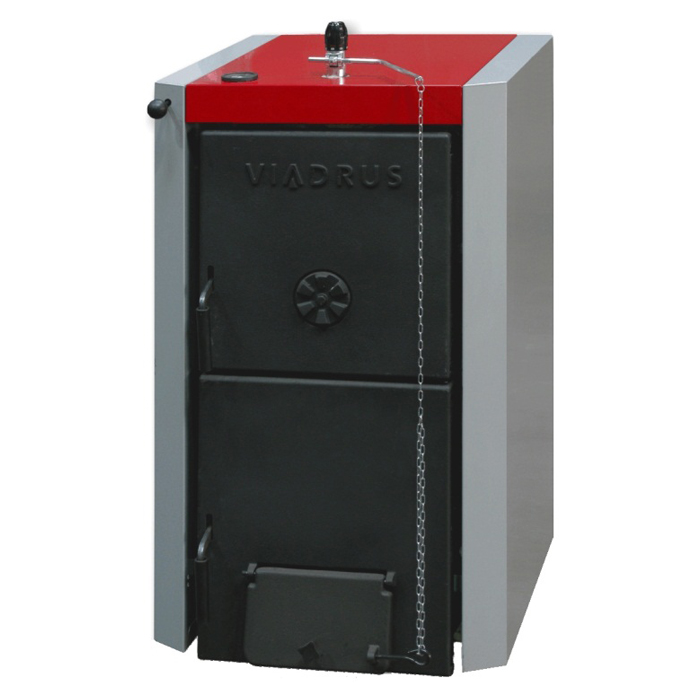Please do not block ads on our site. Clicks on ads help us exist, grow and become more useful for you!
Solid fuel boiler

Solid fuel boiler - a source of heat designed to transfer the energy of fuel combustion (wood, coal, or peat) to a working medium, usually water.
Application area
Solid fuel boilers are used for heating and hot water supply as:
- Main source of heat in residential buildings that are not equipped with a gas pipeline, as well as in cases where it is necessary to reduce natural gas consumption;
- Peak source of heat in residential buildings where the main source of heat is a heat pump designed to operate in a bivalent heating scheme;
- Backup source of heat in facilities with interruptions in electricity or gas supply. In the event of power outages, the heating system design should provide for the possibility of operating with natural circulation of the heat carrier.
Hot water supply with a solid fuel boiler is achieved only through indirect heating of domestic water or technical water in a water heater.
Advantages of a solid fuel boiler compared to a gas boiler
- Availability of fuel
- Wide range of possible types of fuel
Disadvantages of a solid fuel boiler compared to a gas boiler
- Need to reload fuel several times a day
- Need for maintenance
- Narrow range of regulation
- Output power depends on the combustion phase of the fuel
- Efficiency strongly depends on the quality of the fuel
- Need to use in conjunction with a thermal accumulator
- Cannot be quickly turned on or off
Advantages of a solid fuel boiler compared to a pellet boiler
- Availability of fuel
- Wide range of possible types of fuel
- Low cost of a solid fuel boiler and simple construction
Disadvantages of a solid fuel boiler compared to a pellet boiler
- Need to reload fuel several times a day, while in a pellet boiler, it is possible to implement automatic fuel feeding from the hopper
What can be used as a replacement
- Pellet boiler
- Pyrolysis boiler (long-burning solid fuel boiler)
- Gas boiler
- Electric boiler
calculate
diagram of connecting
specifications
how it work
ignition and adjustment
service
construction
installation
repair
heating cost calculator
209









 Catalog of
Catalog of 
